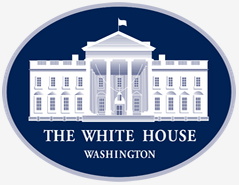 The White House just wrapped up their National Strategic Computing Initiative Workshop (NSCI).
The White House just wrapped up their National Strategic Computing Initiative Workshop (NSCI).
The purpose of the workshop was to maximize the impact and inform long term planning for the NSCI, by creating new partnerships between academia and industry.
Tom Kalil, Deputy Director for Policy for the White House Office of Science and Technology Policy, laid out the newly released nanotechnology-inspired Grand Challenge and asked the audience:
What are the main actions that we need to develop in order to carry out the president’s five main actions laid out in the NSCI?
The three themes from the workshop were:
- Convergence of data-intensive and numerically intensive computing
- Hardware technology for future HPC systems
- Improving productivity in HPC Application Development and Deployment, and creating a trained workforce
There were two keynote speakers, Dr. Thomas Theis from the Semiconductor Research Corporation and Computing Community Consortium (CCC) Council member Dr. Kathy Yelick from Lawrence Berkeley National Laboratory and University of California, Berkeley.
Theis stressed the importance of investing in exploratory research. If we invest now, we can have a big impact beyond 2025. He also stressed the need for post-CMOS device research. It is clear that CMOS is coming to an end, so what is the next step? There is a huge need and opportunity for research investment in this space.
Yelick presented on More Data, More Science, and Moore’s Law and stated that science is poised for transformation. The NSCI program will make this transformation happen. Breakthrough science will occur at the interface of observation and simulation. It will need capable exascale systems, computer science, statistical machine learning and new mathematical models, and algorithms. Computing performance growth is slowing but productive tools (such as cloud computing and high performance computing) can help.
Stay tuned for more information from the White House about the NSCI.









Trackbacks /
Pingbacks